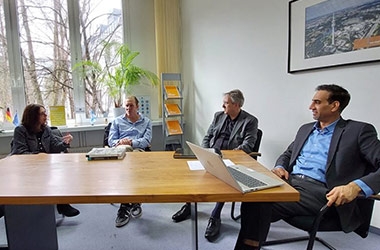Wittenborg Online News!
National Agency Wants to Double Germany’s International Graduate Retention by 2030
National Agency Wants to Double Germany’s International Graduate Retention by 2030
National Agency Wants to Double Germany’s International Graduate Retention by 2030

“International students are the skilled workers of tomorrow.”
A recent paper from the German Academic Exchange Service (DAAD) emphasises the significance of international education in addressing labour market demands. DAAD suggests joint action by government, universities and businesses in developing a new international recruitment and retention strategy. The agency aims to double the number of graduates retained in Germany to approximately 50,000 per year by 2030.
The German government predicts a shortage of 240,000 skilled workers by 2026 and it is believed that international students will help in filling this gap. To achieve this, DAAD sets out ten recommendations for government, higher education institutions and employers, including simplifying admissions and student visa processes, expanding student support services and developing international career centres at universities. The agency also suggests increasing worldwide marketing for Germany as an excellent place to study and streamlining admissions and visa processes to attract more international students.
DAAD stresses the need for a balanced strategy that benefits everyone involved, including the individual, the host country and the country of origin. By developing a comprehensive strategy and taking joint action, Germany can effectively address the skilled worker shortage while providing international students with a clear path to professional careers.
An attractive study location
According to a recent report by the German Academic Exchange Service (DAAD) and the German Centre for Higher Education Research and Science Studies (DZHW), the number of international students in Germany has risen significantly over the past 10 years. The winter semester of 2020/21 saw a record-breaking 324,729 international students studying in Germany. This means international students account for 11% of all students in the country. This figure represents a significant increase of 75.5% since the winter semester of 2010/11 when there were 184,960 international students.
Out of all international students, 31.4% came from Asia and the Pacific region, making it the largest group of international students in Germany. This was followed by North Africa and the Middle East with over 63,000 students, Western Europe with over 54,000 students, and Central and Southeastern Europe with over 35,000 students. China was the country with the highest number of international students in Germany in 2020/21, accounting for 12.4% of the total student population. India followed closely behind with nearly 15% increase in student population compared to the previous year.
Interestingly, universities of applied sciences had a lower percentage of international students at 8.6%, while universities had a higher percentage of international students at 12.6%. The rise in international students can be attributed to the high quality of education offered by German schools as well as the numerous opportunities for professional development in the country.
For students who are considering studying abroad, Germany offers an excellent education system that provides world-class degrees recognised across the globe. One of the universities of applied sciences that stands out is Wittenborg University of Applied Sciences' Munich study location at New European College (NEC). NEC is a private and state-accredited institution that focuses on business studies and is committed to providing quality education that prepares students for success in the global job market. Its programmes are designed to equip students with the necessary knowledge, skills and practical experience that will enable them to thrive in their chosen fields.
NEC's location in Munich is also a significant advantage for students, as it provides them with access to one of Europe's most dynamic and thriving cities. Munich is a hub for business, innovation and culture and offers students an exciting environment in which to live, learn and explore.
WUP 03/05/2023
by Olivia Nelson
©WUAS Press
621 words